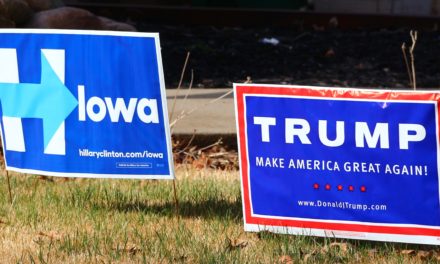Never run away from a lion. That’s what my uncle told me when I was younger. If you encounter a lion, he said, puff out your chest and try to look as big as possible. In the midst of a nuclear standstill, the United States and North Korea are both puffing out their chests. But so far, both the U.S. and North Korea have deterred each other from deploying a nuclear warhead for the fear of mutually assured destruction. That standstill represents more than just a lack of progress; it benefits citizens on both sides looking for safety and security.
On July 28, North Korea test-launched the Hwasong-14, an intercontinental ballistic missile that traveled over 2000 miles toward the shores of Hokkaido, Japan’s northernmost large island. Most recently, on Aug. 29, North Korea test-launched a ballistic missile over northern Japan and landed in the Pacific Ocean after it traveled for about 1,700 miles. To put things into perspective, these missiles traveled almost the entire length of the U.S. Even scarier, it took only 45 minutes for these missiles to approach their desired targets.
This year alone, North Korea has tested 11 other various missiles to flex its military muscles. According to experts, these missiles may have the potential to reach California. It is a sobering reality that the U.S. would have roughly 10 precious minutes to react if the North Korean supreme leader were to strike the U.S. mainland with a ballistic missile.
Those threats are real and escalating to a juncture at which a response from the West is necessary. I too often hear people say, “We have nothing to worry about,” because we are the U.S. and we have the largest military in the world. And while the U.S. remains a world superpower, North Korea’s recent activity is a wake-up call to those who feel that they are impervious to international attacks just because they live in this country.
In response to North Korean missile tests, the U.S. military conducted bomber-jet drills and tested out its Terminal High Altitude Area Defense (THAAD) missile system — a justified and necessary response. In addition, President Donald J. Trump promised Aug. 10 that the U.S. is “locked and loaded” to retaliate against a potential North Korean attack on Guam. “All options are on the table,” Trump promised Aug. 29, following North Korea’s latest missile launch. While Trump’s comments indicate that we are prepared for a fight, I personally err on the side of safety when it comes to halting the growing tensions between North Korea and the West.
One possible solution involves increasing sanctions on companies that buy and sell raw materials in China, North Korea’s primary trading partner. The U.S. has already sanctioned companies with ties to coal and metals, which are typically used in the production of nuclear weapons. In doing so, the U.S. has non-violently mitigated nuclear threats from North Korea by drying up Chinese exports. That strategy is safe in the short term for the U.S. because it focuses its resources on the developmental side of nuclear research, rather than the dangerous, and likely fatal, side of conflict.
But the U.S. should have no remorse if it has to fight fire with fire. On June 13, North Korea sent Otto Warmbier, a U.S. citizen, back to the U.S. after he had been sentenced to 15 years of hard labor for allegedly stealing a propaganda poster. Warmbier was returned in a vegetative condition, from which he never recovered. His death prompted Trump to call for a travel ban to North Korea, which is set to start in September.
Some argue that the North Korean leader used Warmbier to send a message to the U.S. — that he is willing to kill his country’s hostages, an argument I accept. Kim Jong-un would probably like nothing more than to show the world that he has no tolerance for negotiating with the West. If the U.S. must fight fire with fire, Americans must encourage the attempt to stop dictatorships and human rights abuses worldwide.
When the U.S. makes its next move, it should have the complete encouragement of all Americans — and all those wishing to stop dictatorships, especially ones that perpetuate human rights abuses, in their tracks.
Daniel Weinberg is a College junior from Syosset, New York.




